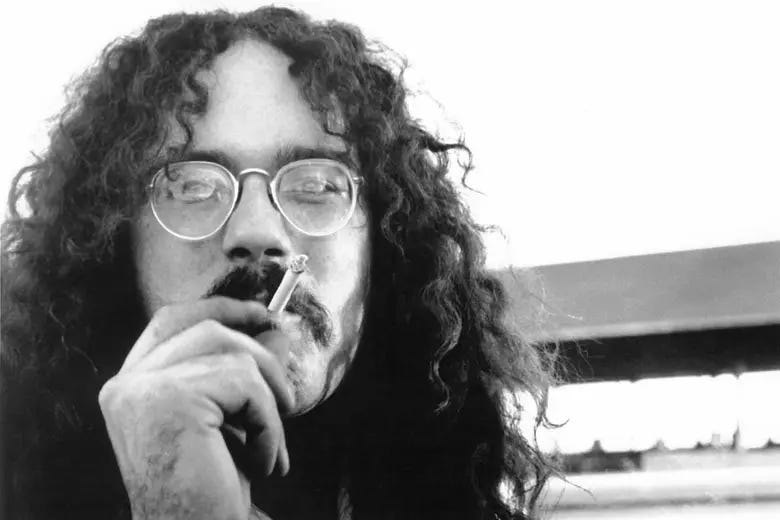Remembering John Sinclair: The Michigan Poet & Activist Immortalized in a John Lennon Song
John Sinclair, October 2, 1941 – April 2, 2024
John Sinclair was a legend at the University of Michigan, where I went to college.
The guy who went to jail for 10 years for 2 joints: that was the shorthand we used to use. But I’ll be damned if that isn’t the most reductive possible way to describe Sinclair, who was not only a poet but also an activist whose shrewd understanding of how marijuana laws were tied to larger systems of oppression was ahead of its time.
Sinclair was sentenced to 9 1/2 to 10 years in state prison after offering two marijuana joints to a female narcotics officer who was undercover in 1969. His imprisonment sparked an outrage that caught the attention of artists and musicians nationwide and sparked memorable protests, including one at Woodstock.
At another protest, John Lennon debuted his song “John Sinclair,” which detailed the poet’s plight:
It ain't fair, John Sinclair In the stir for breathin' air Won't you care for John Sinclair? In the stir for breathin' air Let him be, set him free Let him be like you and me They gave him ten for two And what else can the judges do? They gotta, gotta, gotta, gotta, gotta, gotta, gotta, gotta Gotta, gotta, gotta, gotta, gotta, gotta, gotta set him free
The song, sometimes known as “10 for 2,” was later included on Lennon’s 1972 album Some Time in New York City. You can listen to Lennon’s performance of the song below.
CW: the song includes a racist slur against Asians in reference to the Vietnam War. Jesus, Lennon.
The performance in this video was recorded at the John Sinclair Freedom Rally, which was held at the University of Michigan’s Crisler Arena in 1971 and featured such luminaries as Bob Seger, Stevie Wonder, and Allen Ginsberg along with 15,000 supporters. The rally succeeded in generating attention: days later, Sinclair was released, after having served 29 months of his sentence.
NORML Founder Keith Stroup was in attendance at the event, and remembers it as a formative experience:
It was the first time I recall ever seeing such mass civil disobedience, and it was empowering to experience. Tens of thousands of people openly smoking marijuana and no one being hassled by the police.
Sinclair’s imprisonment and the Freedom Rally bearing his name formed the basis of Ann Arbor’s well-known Hash Bash, held annually in April since 1972. A lifelong activist before and after his imprisonment, Sinclair was the first one in line to purchase marijuana when Michigan legalized it in 2019.
Sinclair died last week at the age of 82.
Sinclair, Poetry, & Pot
My first poetry teacher, University of Michigan Professor Emeritus Ken Mikolowski, knew Sinclair well. With the painter Ann Mikolowski, his wife, Ken founded The Alternative Press. This important experimental poetry press allowed poets and painters to create one-of-a-kind postcards, broadsides, and other ephemera and mailed them out in editions to subscribers. For 30 years, The Alternative Press was a beacon for poetry, poets, and counterculture in Detroit and beyond.
The Mikolowskis sent poems to Sinclair during the time he was incarcerated in a remote Upper Peninsula jail (the State Prison at Jackson, some 40 miles from Ann Arbor, had proved too close to supposed “influences” that the establishment feared). Sinclair understood the value of the Mikolowskis’ Alternative Press as well as the need for an “alternative press” more broadly. Both feelings are illuminated in Sinclair’s poem of the same name:
Above all, Sinclair was pro-freedom. And from giving away poems for free to freeing those incarcerated due to marijuana laws, freedom was at the core of all Sinclair’s beliefs:
And we will press that alternative in the face of whatever it is would not have us free—we will press it, and press it, until our lives themselves become the poem
It’s a political philosophy that’s easy to dismiss as “stoner ideology.” But as we reckon with the constriction of our everyday lives here and now—from the 40-hour work week to debt to immigration laws to reproductive healthcare laws—culturally many of us are beginning to understand that we’ve created a culture that shackles us, curbing our freedom in terms of our bodily autonomy, our movement, and our time.
Sinclair was well aware of the outrageous nature of his sentence but also tuned in to how marijuana laws were and continue to be used to oppress and silence, how drug laws are just one arm of a many-legged monster. His remarks from his sentencing trial are delightfully spicy, and can be read here thanks to the Ann Arbor District Library (Support your local libraries, y’all! They’re doing god’s work!)
As the ACLU reminds us, marijuana is a racial justice issue. In John Sinclair’s memory, and especially if you’re enjoying some bud in one of the ten states that have legalized it, we must continue to fight for the release of those imprisoned for marijuana-related offenses and continue the work to break down the carceral industrial complex that benefits from the criminalization of weed.
Last Call
Sinclair committed some writings to the page, but much of his work exists as audio recordings, and he is often understood as a kind of “jazz” poet. As he journeys into the next world, spend some time sending Sinclair off by listening to his recordings available online, like this one:
Rest in poetry, my dude.



